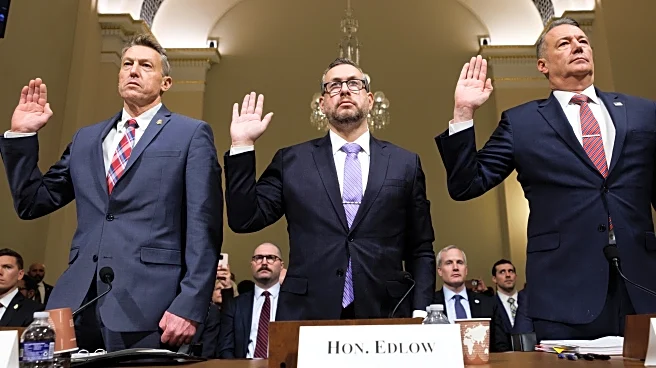What's Happening?
Negotiators from the United States and China have reached a preliminary agreement to prevent the imposition of additional 100 percent tariffs on Chinese imports, a move that President Trump had previously threatened. This development comes ahead of a scheduled
meeting between President Trump and Chinese leader Xi Jinping. U.S. Treasury Secretary Scott Bessent announced that the agreement was reached after constructive discussions with Chinese officials, who agreed to defer restrictions on rare earth minerals crucial to the U.S. economy. The negotiations also addressed issues such as agricultural trade and the restructuring of the social media app TikTok to avoid a U.S. ban. The talks, held in Kuala Lumpur, Malaysia, involved U.S. Trade Representative Jamieson Greer and top Chinese negotiators, including Vice Premier He Lifeng.
Why It's Important?
The tentative trade deal marks a significant de-escalation in the ongoing trade tensions between the world's two largest economies. The potential imposition of 100 percent tariffs could have severely impacted U.S. industries reliant on Chinese imports, particularly electronics that use rare earth minerals. The agreement to defer these restrictions provides temporary relief to U.S. manufacturers and farmers affected by China's previous trade barriers. Additionally, the resolution of the TikTok issue addresses national security concerns while maintaining the app's availability in the U.S. market. The broader implications of this deal could stabilize economic relations and foster further cooperation on pressing issues like the fentanyl crisis.
What's Next?
The upcoming meeting between President Trump and Xi Jinping will be crucial in finalizing the details of the trade agreement. Both leaders are expected to discuss and potentially ratify the framework established by their negotiators. The outcome of this meeting could set the tone for future U.S.-China relations, impacting global trade dynamics. Stakeholders in both countries will be closely monitoring the situation, as any changes could affect international markets and economic policies.

















